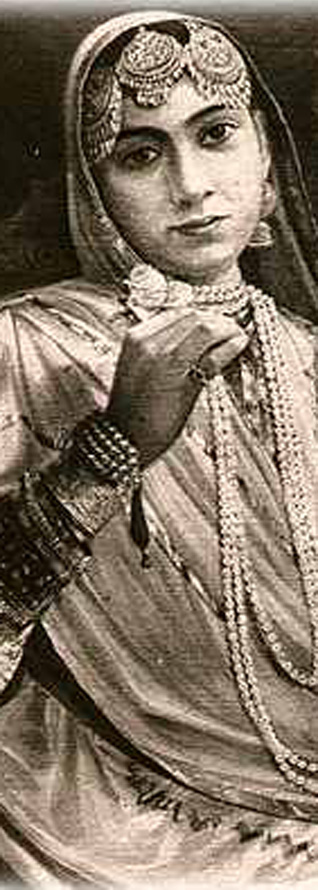History
This Needs Research - II:
Who Was The Real Rani Jind Kaur?
T. SHER SINGH
EDITOR’S PREFACE: We live at a time when all the tools are at our disposal to do excellent research and make serious inroads into areas of Sikh history and thought which have hitherto been neglected.
There are good men and women around the world who have dedicated their careers to Sikh Studies and have both the independence and the resources to turn their attention to important questions which remain either unanswered to date or remain vague in the fog of time.
This is the second in a new series on sikhchic.com wherein we will attempt to pose some of these questions which come to mind, hoping that those entrusted with the mantle of scholarship will then find them worthy of attention, if they aren‘t already being delved into.
We invite readers to share with us any questions or areas of interest which intrigues them as deserving new or continuing research, and also explain briefly why such fields should be explored.
Today’s question: “Who Was The Real Rani Jind Kaur?“
* * * * *
Maharaja Duleep Singh’s mother and Ranjit Singh’s youngest consort, Rani Jind Kaur - popularly known as Rani Jindan - was an iconic figure who in many ways shaped Sikh history during the tumultuous decade immediately following the Sikh Emperor’s death in 1839.
The British were wary of her as they furiously schemed to annex the Sikh Kingdom by hook or by crook, and saw her as a major impediment to their plans to complete the conquest of the subcontinent.
One of the primary tactics they used to chip away at her immense influence over the Khalsa Army was to unleash their nefarious propaganda machine against her. New and self-contradictory fictions of her ancestry, her upbringing, her marriage, her paramours, etc would surface with frightening frequency in the English press and then leaked into the Punjabi countryside as rumours, to the point that Jindan’s history still remains muddied and obfuscated to this very day.
We still do not have a definitive biography of this extraordinary woman; those that have been published in India, both in Punjabi and English, are grossly inadequate and shed little light on the factual details of her life and accomplishments.
It is time proper and original research was done on her life and an authoritative biography was published on a woman widely known for her fierce intellect, legendary beauty, street smarts, political acumen and stamina, and her ability to handle a kingdom in turmoil, all of which were seen as a mountain of a hurdle for the insatiable ambitions of yet another foreign occupier bent upon extending its empire.
To fully understand the watershed post-Ranjit Singh period, we need to fathom Jind Kaur’s role and the trajectory of her tragic life which concluded with her untimely and premature death in London, England in 1863.
Her life and times will give us a unique insight into ourselves ... our past, our present, and our future.
December 15, 2016
Conversation about this article
1: Ajit Singh (Brampton, Ontario, Canada), December 16, 2016, 7:50 PM.
T. Sher Singh ji: You have mentioned only the recent history of Sikhs that has gone foggy and inaccurate. However, there were so many distorters throughout our history from the very beginning. We have so many fictitious Bala Saakhis and Suraj Prakash and what not. We even have a controversy over the exact date of the parkask day of Guru Nanak Sahib. Majority of the the so called intellectuals employed in the universities in Punjab are copy cats or biased and incompetent to conduct any real research. There are many questions that need to be posed and answered, only if there are unbiased, independent and objective researchers. I too have my fair share of questions.
2: Inderpreet Singh (Chandigarh, Punjab), December 17, 2016, 3:01 PM.
Priya Kaur Atwal is doing a PhD in History at Oxford University on Maharani Jind Kaur.
3: Raj (Canada), December 28, 2016, 5:14 PM.
Sardar Sangat Singh is so right. Most of our history recording is foggy and you cannot rely on research done in India due to politico-religious interference. We can only hope that the next generation of researchers can focus on these issues outside India. Even the guidance in our religious affairs will have to come from outside India. Prime example is, Pal Singh Purewal who worked painstakingly to create a standardized Sikh Calendar, only to be dismissed by Sikh puppets heavily influenced by non-Sikhs (Hindutva crowd) within India.



